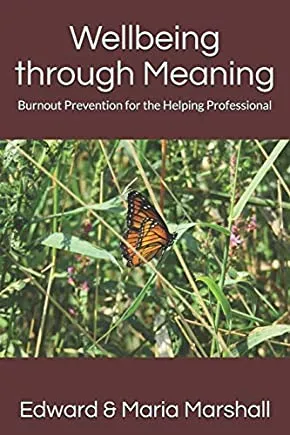January 11, 2023
Viktor Frankl’s Logotherapy and Existential Analysis (LTEA) can be helpful to prevent burnout as well as to manage the effects of moral injury. Burnout and moral injury are two different entities. Burnout refers to exhaustion from excessive work. Moral injury is the consequence of values transgressions.

Burnout is a phenomenon that occurs at the workplace. LTEA, with its focus on the search for meaning, can be useful in its prevention. When people have a sense of meaning and purpose, they can take care of themselves better, and participate in meaningful activities where they actualize values in their lives.

Moral injury refers to values transgressions. It can occur in the process of work, or everyday life, when there is a betrayal of one’s personal values by someone else or through one’s own failures. To come to terms with values transgressions it is important that a person recognizes their values and how they are in search of meaning.
In LTEA, search for meaning refers to the actualization of personal values. Values are guiding principles, but if they are not lived, one cannot find meaning in life. Therefore, it is important to recognize what are our personal values and if they are in alignment with universal values. Examples of universal values are human rights and the dignity of the person. When one actualizes values in harmony with universal values as their guiding principles, one finds meaning in life. In the case of moral injury, there is a sense of meaninglessness. The sense of meaninglessness can lead to symptoms such as disappointment, anxiety, and distress. These symptoms are the manifestation that the person is experiencing a lack of such values. The symptoms in themselves are not pathological, but if not managed, they can lead to serious consequences, such as depression, or posttraumatic stress disorder.
LTEA, in the first place, looks at areas of freedom and how a person can respond to a situation. It explores emotions related to values. After identifying the values, a person can decide, out of their freedom of will, what is the best course of action. In certain situations, it is to reaffirm those values, those personal and universal values that a person has, and lives accordingly, or choose a different path, or acknowledge that someone else has trespassed those values. In this way, LTEA can be a helpful complement to other therapeutic modalities like cognitive behavior therapy (CBT). The issue with CBT is that we try to reappraise cognitions or look at reality from different perspectives, but in the case of moral injury, the reality is that there has been a values transgression. As we acknowledge this reality, we recognize the emotions in relation to our values and in doing so, we search for meaning in suffering.
On the other hand, with burnout, what we are trying to do is to increase the resiliency of the person. Resiliency means that people can face life’s challenges and they don’t become broken or sick in the face of those challenges. They can step back through self-distancing from the situation and respond according to their values. In many cases, when there is exhaustion from work, it is important that the person takes care of themselves, that they replenish their energies so they can be effective in their work. In other situations, they can analyze what kind of work they are doing and if it is meaningful to them. Sometimes there are repetitive tasks, or monotonous work that is not meaningful, and the person loses their own sense of humanity. When we reconnect with our values, we start to see possibilities within that work environment where we can live our values: In connecting with coworkers, contributing to society, or how we face different challenges.
Burnout and moral injury if left untreated can lead to mental health problems. LTEA offers an approach that can improve life satisfaction and resiliency.
On March 23-24, 2023, Professor Edward Marshall is offering a two-day workshop at the Royal Ottawa Mental Health Centre that will focus specifically on the methods and applications of Viktor Frankl’s Logotherapy and Existential Analysis. This event is tailored toward health professionals and students who would like to deepen their knowledge and understanding of the uses of this modality in their clinical practice. Registration Page.
